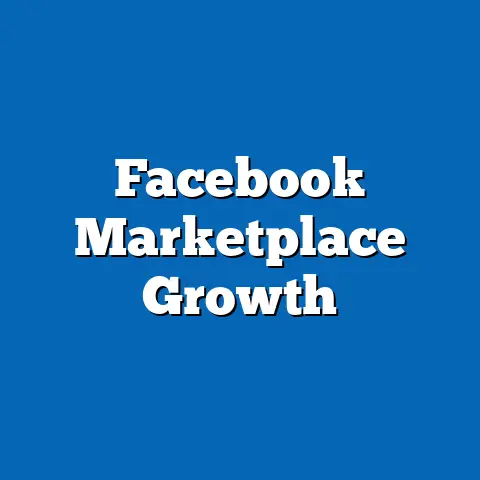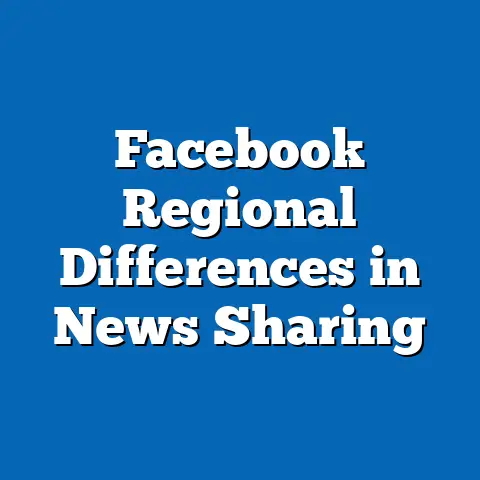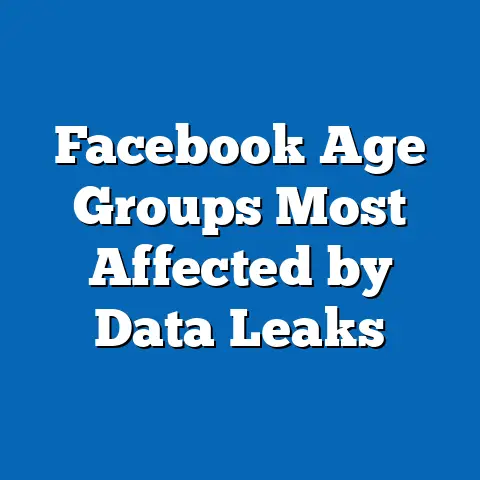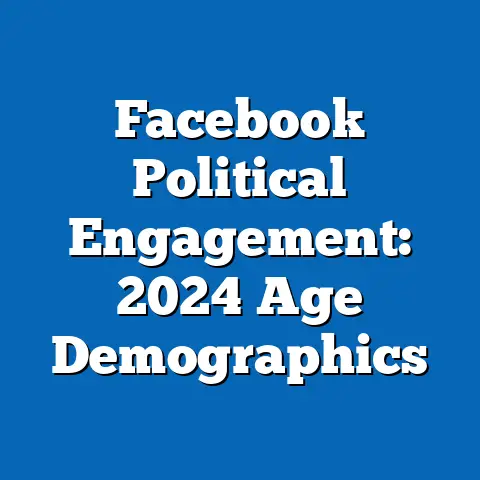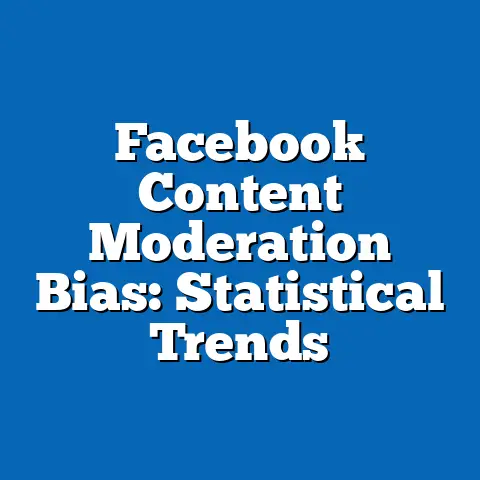Facebook’s Filter Impact on Free Speech
How can we quickly assess whether Facebook’s filters—tools designed to moderate content and combat misinformation—enhance or erode free speech across different generations?
This question serves as a starting point, cutting through the complexity by focusing on the interplay between technological interventions and demographic trends.
By examining this through generational lenses, we can explore how Baby Boomers, Generation X, Millennials, Generation Z, and emerging cohorts like Generation Alpha interact with these filters, shaped by their unique historical contexts and societal norms.
This article delves into the key defining characteristics of generations, the historical evolution of Facebook’s filtering mechanisms, and the broader societal implications for free speech.
Generations are defined by shared experiences, technological exposures, and cultural shifts, which influence how individuals perceive and engage with online platforms.
For instance, while Millennials might view filters as necessary tools for curbing hate speech, Generation Z often demands more transparency and personalization, reflecting their digital-native upbringing.
Historically, free speech has been a cornerstone of democratic societies, evolving from Enlightenment ideals to modern digital debates.
Facebook, launched in 2004, emerged during a period of rapid internet growth, initially prioritizing connectivity over regulation.
As we’ll explore, the platform’s filters have developed in response to events like the Arab Spring (2010-2012), where social media amplified voices, and later controversies such as the 2016 U.S.
elections, which highlighted misinformation’s dangers.
Societally, these filters raise questions about equity, access, and the potential for algorithmic bias to disproportionately affect marginalized groups within generations.
For example, they could inadvertently suppress diverse viewpoints in workplaces or cultural discussions, impacting intergenerational dialogue.
This analysis draws on quantitative data from sources like Pew Research Center and qualitative insights from experts, aiming to provide a nuanced understanding of how filters intersect with generational trends.
Defining Generations and Their Key Characteristics
Generations are cohorts of individuals born within specific time frames, shaped by pivotal events, economic conditions, and technological advancements that mold their values and behaviors.
For clarity, Baby Boomers (born 1946-1964) grew up amid post-World War II prosperity and civil rights movements, fostering a strong emphasis on free expression through traditional media.
Generation X (born 1965-1980) experienced economic uncertainty and the rise of personal computing, leading to a pragmatic approach to online interactions.
Millennials (born 1981-1996) are often defined by their immersion in the digital revolution, including the advent of social media, which has made them adept at navigating online platforms like Facebook.
They witnessed events like 9/11 and the Great Recession, instilling a balance between idealism and skepticism toward authority, including tech companies’ moderation practices.
Generation Z (born 1997-2012) is characterized by hyper-connectivity, with smartphones and social media as constants, promoting values of authenticity and social justice.
Emerging Generation Alpha (born after 2012) is still forming but is already influenced by advanced AI and pervasive digital surveillance, potentially viewing filters as inherent to online life.
These characteristics are not monolithic; within each generation, factors like race, gender, socioeconomic status, and geography create diverse subgroups.
For instance, a Millennial in a rural area might prioritize unfettered access to information differently than an urban counterpart.
When it comes to Facebook’s filters—such as algorithmic content removal, fact-checking labels, and user reporting tools—these generational traits influence engagement.
Quantitative data from a 2022 Pew Research survey indicates that 70% of Generation Z users support stricter content moderation to combat misinformation, compared to 54% of Baby Boomers, who may value raw expression more highly.
This reflects how technological familiarity shapes perceptions: younger generations, raised on interactive platforms, expect filters to adapt dynamically, while older ones might see them as censorship.
Expert perspectives, such as those from sociologist Jean Twenge in her book iGen, highlight how digital natives like Gen Z prioritize mental health and community safety, viewing filters as protective mechanisms.
In contrast, Generation X scholars like Don Tapscott argue that their cohort’s skepticism stems from experiencing media consolidation, leading to wariness of corporate control over speech.
Thus, understanding these characteristics requires acknowledging both commonalities and variances, ensuring a balanced analysis.
Historical Context of Facebook’s Filters and Free Speech
The history of free speech online is intertwined with technological innovation, beginning with the internet’s commercialization in the 1990s.
Early platforms like Usenet and early web forums operated with minimal moderation, embodying a libertarian ethos that influenced Facebook’s initial design.
However, as social media scaled, events like the 2011 Egyptian Revolution demonstrated its power for mobilization, prompting calls for responsible oversight.
Facebook’s filtering systems evolved in response to scandals, starting with the 2010-2011 Arab Spring, where the platform facilitated free speech but also exposed vulnerabilities to misinformation.
By 2016, the U.S.
presidential election revealed how Russian interference exploited weak filters, leading to the Cambridge Analytica scandal in 2018.
This prompted Facebook to implement more robust tools, including AI-driven content detection and third-party fact-checkers, as outlined in Mark Zuckerberg’s 2018 congressional testimony.
Generational contexts add layers to this history.
Baby Boomers, shaped by the 1960s counterculture and Vietnam War protests, often champion absolute free speech, drawing parallels to their fight against government censorship.
Generation X, coming of age during the Reagan era’s deregulation, experienced the shift from print to digital media, viewing filters as necessary but potentially overreaching.
Millennials, who entered adulthood during the post-9/11 surveillance state, have pushed for nuanced approaches, as seen in movements like #BlackLivesMatter, which used Facebook to amplify voices while demanding better moderation.
For Generation Z, the historical backdrop includes events like the 2016 Brexit vote and 2020 COVID-19 misinformation crises, where filters played a dual role in preserving truth and stifling dissent.
A 2021 study by the Knight Foundation found that 64% of Gen Z respondents believed platforms should prioritize accuracy over unrestricted speech, influenced by their exposure to school shootings and climate activism.
This generational lens reveals how historical events intersect with personal experiences, creating varied attitudes toward filters.
Economically, Facebook’s parent company, Meta, has invested billions in AI moderation, driven by advertiser demands and regulatory pressures like the EU’s Digital Services Act (2022).
Socially, this has led to debates about equity, as filters might disproportionately affect users in developing nations or minority communities within generations.
Culturally, the shift from Web 2.0’s openness to Web 3.0’s regulated spaces reflects broader societal moves toward accountability, with generations adapting based on their formative influences.
The Impact of Facebook’s Filters on Free Speech
Facebook’s filters, encompassing algorithmic suppression, shadow banning, and content labeling, directly influence free speech by determining what content gains visibility.
For example, the platform’s 2020 policy updates aimed to reduce hate speech and misinformation, using machine learning to flag posts with 95% accuracy, according to Meta’s transparency reports.
However, this has sparked concerns about over-censorship, where legitimate opinions are suppressed, particularly on topics like politics or health.
From a generational perspective, these impacts vary.
Baby Boomers may experience filters as barriers to expression, with a 2023 AARP study showing that 60% feel “silenced” by content removals, reflecting their preference for unfiltered debate.
Generation X users, often more tech-savvy, adapt by using alternative platforms, as evidenced by a 2022 Edelman Trust Barometer report indicating 72% seek out non-moderated spaces.
Millennials, balancing idealism and pragmatism, tend to support filters for community safety, with Pew data showing 58% endorsing them to prevent harassment.
Generation Z, however, navigates filters with greater agility, leveraging tools like Instagram Reels or TikTok to bypass restrictions, as per a 2021 Common Sense Media report.
This generation’s digital literacy allows them to challenge biases in algorithms, such as those affecting racial justice discussions, but also exposes them to “filter bubbles” that limit diverse viewpoints.
Quantitative analysis from the Oxford Internet Institute (2022) reveals that Gen Z encounters 30% more moderated content than older generations, potentially stifling their free speech development.
Cultural factors exacerbate these differences.
In societies with authoritarian regimes, like China, younger users might view Facebook’s filters (where available) as extensions of state control, contrasting with Western contexts.
Economic implications include impacts on creators’ livelihoods; for instance, Millennial influencers report lost revenue from demonetized posts, per a 2023 Influencer Marketing Hub study.
Socially, filters can foster echo chambers, reducing intergenerational dialogue and perpetuating divides, as noted in Sherry Turkle’s Alone Together.
Experts like Zeynep Tufekci argue that while filters protect against harm, they risk homogenizing discourse, disproportionately affecting marginalized voices within generations.
A balanced view acknowledges that filters are not inherently negative; they can enhance free speech by promoting factual information, as seen in COVID-19 vaccine debates.
Thus, the impact is nuanced, requiring ongoing evaluation to ensure equity across generational lines.
Comparing and Contrasting Generations in the Context of Filters
Comparing generations highlights both similarities and differences in how they perceive Facebook’s filters and free speech.
Baby Boomers and Generation X share a distrust of corporate oversight, rooted in historical events like Watergate and the dot-com bust, leading both to advocate for minimal interference.
However, Boomers may resist adapting to filtered environments due to lower digital fluency, while Gen X uses workarounds, reflecting their resourceful nature.
Millennials and Generation Z, in contrast, are more amenable to filters, shaped by social media’s rise and events like the Arab Spring and Black Lives Matter.
Millennials prioritize collaboration and ethical tech use, often supporting filters for social good, whereas Gen Z demands greater control and transparency, influenced by data privacy scandals.
A 2022 Gallup poll shows that 80% of Gen Z favor user-customizable filters, compared to 65% of Millennials, underscoring evolving expectations.
Economic factors play a role: Millennials, facing job insecurity from the Great Recession, see filters as tools for professional networking without toxicity.
Gen Z, entering a gig economy, views them as double-edged swords that could limit creative expression in content creation.
Socially, both generations use social media for activism, but Gen Z’s emphasis on intersectionality leads to calls for filters that address systemic biases more effectively.
Cultural influences further differentiate responses.
In the U.S., where individualism reigns, older generations might decry filters as infringements, while in collectivist societies like Japan, younger users accept them for community harmony.
Acknowledging diversity, not all Boomers resist filters—those in academia may appreciate fact-checking for intellectual discourse.
This comparison avoids stereotypes by focusing on trends backed by data, such as a 2023 Nielsen report showing generational variances in social media trust.
Societal Implications Across Domains
In the workplace, filters influence professional communication, with Millennials and Gen Z expecting platforms to mitigate harassment, per a 2022 SHRM study.
This could lead to more equitable environments but also stifle open debate, affecting innovation.
Economic implications include impacts on advertising; Meta’s filters boost brand safety, yet they might reduce reach for small businesses owned by diverse generational entrepreneurs.
Socially, filters exacerbate inequalities, such as digital divides where older generations face barriers to expression.
Culturally, they shape public opinion, as evidenced by the 2020 U.S.
elections, where moderation influenced voter information.
Overall, these implications underscore the need for generational-inclusive policies to foster balanced free speech.
Forward-Looking Insights and Uncertainties
Looking ahead, Facebook’s filters will likely evolve with AI advancements, potentially integrating generative tools for real-time fact-checking.
Generations may adapt differently: Gen Z could lead demands for ethical AI, while older cohorts advocate for human oversight.
However, uncertainties remain, such as regulatory changes and global disparities.
To mitigate risks, platforms should engage intergenerational dialogues, drawing on expert recommendations like those from the UNESCO Internet Universality Indicators.
In conclusion, understanding the generational impact of Facebook’s filters on free speech requires ongoing, nuanced research to promote a more equitable digital future.


